So, every flight on a trip like this can be perfect….today Murphy’s law strikes and my departure from Makale to Addis is one hour late. I arrive in Addis at 10:30 to head to a propose project area with our implementing partner, ODA (Oromia Development Association). What I thought would be a 2 hour drive turns into about 3 ½ hours on a highway headed northwest out of Addis that is jam packed with trucks. I have never seen so many trucks carrying both full and empty sea shipment containers. This roads turns out to be the main supply route for Ethiopia’s connection to the sea in Djibouti. About half way between Addis and the project area, Juju, there is a large freight distribution terminal for goods coming from Djibouti. I think all the trucks in Ethiopia were headed there today.
We arrive at one of the main villages in the Juju district, Deneb Gudo, about 2:30.
We were greeted by about 50 community members that had been patiently and graciously waiting on us to arrive for about 2 hours. One of the village elders describes the dire need of clean water for this district. It has been struck by less rainfall than normal for the last two years, causing crop failures and most of their normal sources of water (open contaminated runoff ponds) go dry before the next rainy season, causing long daily walks for the women and children to fetch water. After a short visit, we head to some of the prospective areas that need clean water.
Our first stop was the community of Ija Kereye, a short distance for Deneb Gudo. In most of the district, the main water sources for the people are like the one shown above. Open ponds that collect contaminated runoff and that are shared by the livestock in the area. You can only imagine the potential water borne diseases contained in water like this.
Near to the collection pond, the community is already working on the excavation work for their well. Even though the proposal is not officially approved, they say this is an “act of faith” on their part and they wanted to demonstrate their commitment to contribution “sweat equity” to their projects. ODA has a great community engagement model and it is clear the community is already behind the program, even though the work has not been approved.
This area around Deneb Gudo has very few clean water sources, so the actual clean water coverage is only around 25% of the population. There are no other active NGO’s in this area and the local government has had little or no budget to add new well sites for a number of years. Because of the strong need, W2T will be implementing 25 new hand dug wells during the 1st half of 2013 with ODA. Even though our visit has been cut short by the late flight and long driving times, we are able to visit 3 of the prospective project areas.
Our last stop is with the community of Imbo. We visit their collection pond, where we find the lady in the picture above filling her clay pot to carry back to her house. After the water project is completed, this collection pond would be turned into exclusive use for the livestock.
Just like the first site, the Imbo community has already started excavation for its well. Even though our visit is short, it is clear from our time here that the community both has great need and a great desire and commitment to build sustainable projects.
Sunset is drawing nigh, so begin our drive back to Addis……yes, on that same packed road! We arrive back at the hotel about 8:15 and with just enough time to enjoy a dinner With Alem Tesfey and his wife Helen and their young son at their home. Alem is co-owner of Diversity Tours and has help organize W2T’s trips for the last 3 years or so, providing us with splendid service. He and his family has become real supporters of our mission.
Tomorrow is wrap up day in Addis before heading back to the US, filled mostly with meetings with our partners to review the trip results, action items and discuss planning for 2013. These trips are the highlight of our work at Water to Thrive. We get to represent the thousands of supporters that have made these life saving projects possible and we get to experience firsthand the joy, gracious spirit and heartfelt thankfulness shared by every community we visit. We are truly blessed to be a blessing!
So, every flight on a trip like this can be perfect….today Murphy’s law strikes and my departure from Makale to Addis is one hour late. I arrive in Addis at 10:30 to head to a propose project area with our implementing partner, ODA (Oromia Development Association). What I thought would be a 2 hour drive turns into about 3 ½ hours on a highway headed northwest out of Addis that is jam packed with trucks. I have never seen so many trucks carrying both full and empty sea shipment containers. This roads turns out to be the main supply route for Ethiopia’s connection to the sea in Djibouti. About half way between Addis and the project area, Juju, there is a large freight distribution terminal for goods coming from Djibouti. I think all the trucks in Ethiopia were headed there today.
We arrive at one of the main villages in the Juju district, Deneb Gudo, about 2:30.
We were greeted by about 50 community members that had been patiently and graciously waiting on us to arrive for about 2 hours. One of the village elders describes the dire need of clean water for this district. It has been struck by less rainfall than normal for the last two years, causing crop failures and most of their normal sources of water (open contaminated runoff ponds) go dry before the next rainy season, causing long daily walks for the women and children to fetch water. After a short visit, we head to some of the prospective areas that need clean water.
Our first stop was the community of Ija Kereye, a short distance for Deneb Gudo. In most of the district, the main water sources for the people are like the one shown above. Open ponds that collect contaminated runoff and that are shared by the livestock in the area. You can only imagine the potential water borne diseases contained in water like this.
Near to the collection pond, the community is already working on the excavation work for their well. Even though the proposal is not officially approved, they say this is an “act of faith” on their part and they wanted to demonstrate their commitment to contribution “sweat equity” to their projects. ODA has a great community engagement model and it is clear the community is already behind the program, even though the work has not been approved.
This area around Deneb Gudo has very few clean water sources, so the actual clean water coverage is only around 25% of the population. There are no other active NGO’s in this area and the local government has had little or no budget to add new well sites for a number of years. Because of the strong need, W2T will be implementing 25 new hand dug wells during the 1st half of 2013 with ODA. Even though our visit has been cut short by the late flight and long driving times, we are able to visit 3 of the prospective project areas.
Our last stop is with the community of Imbo. We visit their collection pond, where we find the lady in the picture above filling her clay pot to carry back to her house. After the water project is completed, this collection pond would be turned into exclusive use for the livestock.
Just like the first site, the Imbo community has already started excavation for its well. Even though our visit is short, it is clear from our time here that the community both has great need and a great desire and commitment to build sustainable projects.
Sunset is drawing nigh, so begin our drive back to Addis……yes, on that same packed road! We arrive back at the hotel about 8:15 and with just enough time to enjoy a dinner With Alem Tesfey and his wife Helen and their young son at their home. Alem is co-owner of Diversity Tours and has help organize W2T’s trips for the last 3 years or so, providing us with splendid service. He and his family has become real supporters of our mission.
Tomorrow is wrap up day in Addis before heading back to the US, filled mostly with meetings with our partners to review the trip results, action items and discuss planning for 2013. These trips are the highlight of our work at Water to Thrive. We get to represent the thousands of supporters that have made these life saving projects possible and we get to experience firsthand the joy, gracious spirit and heartfelt thankfulness shared by every community we visit. We are truly blessed to be a blessing!
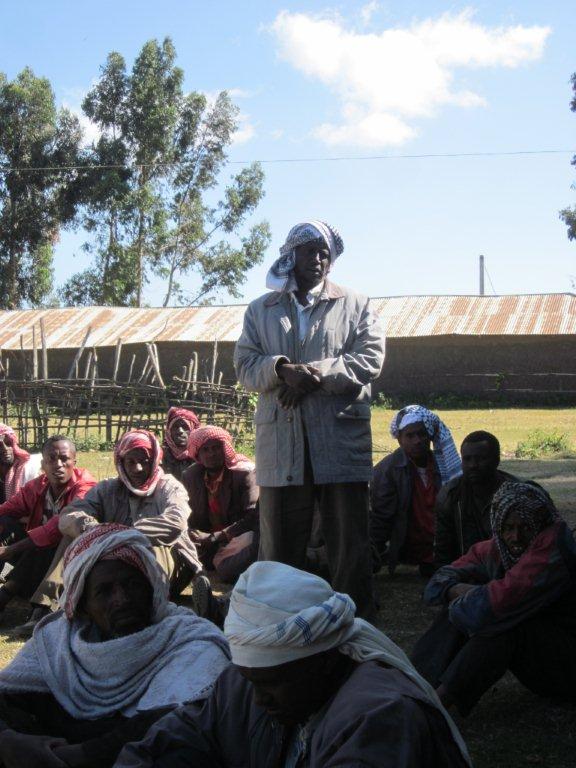
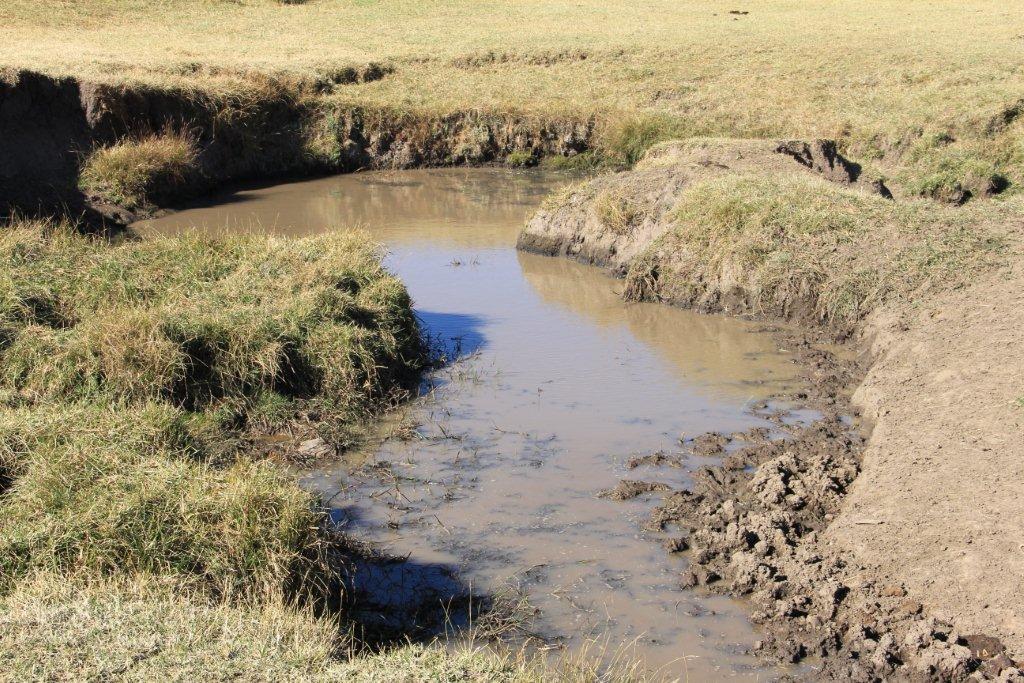
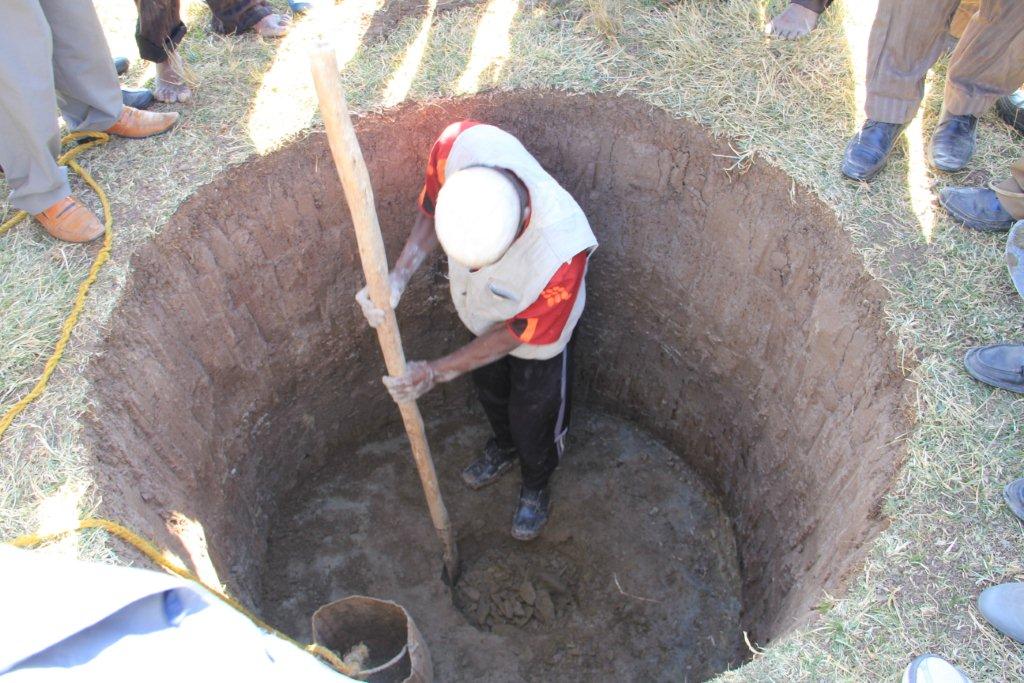
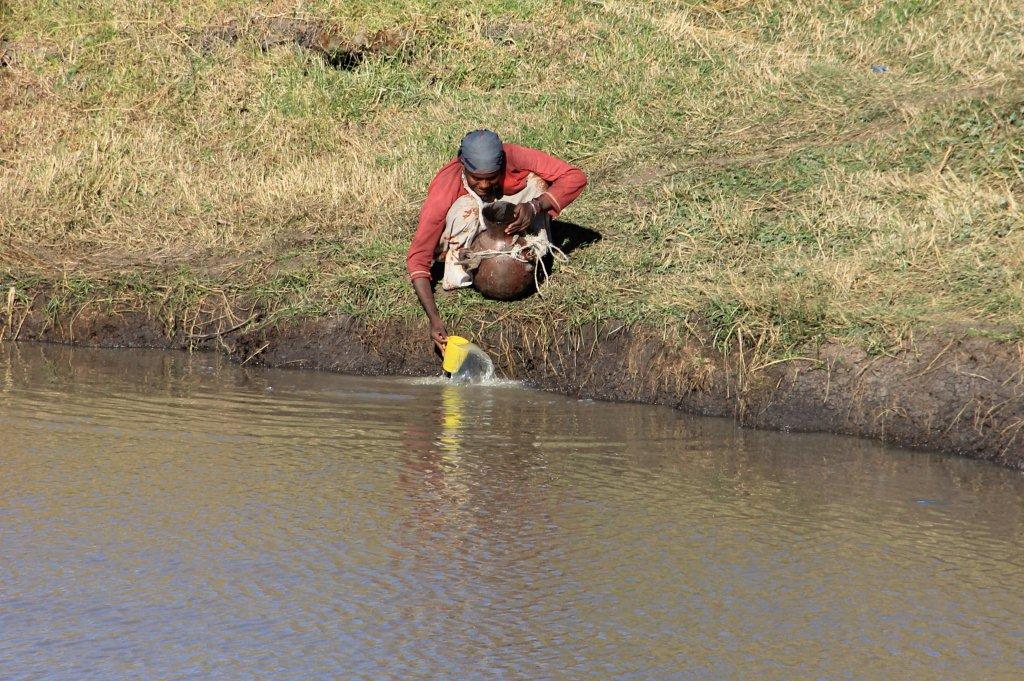
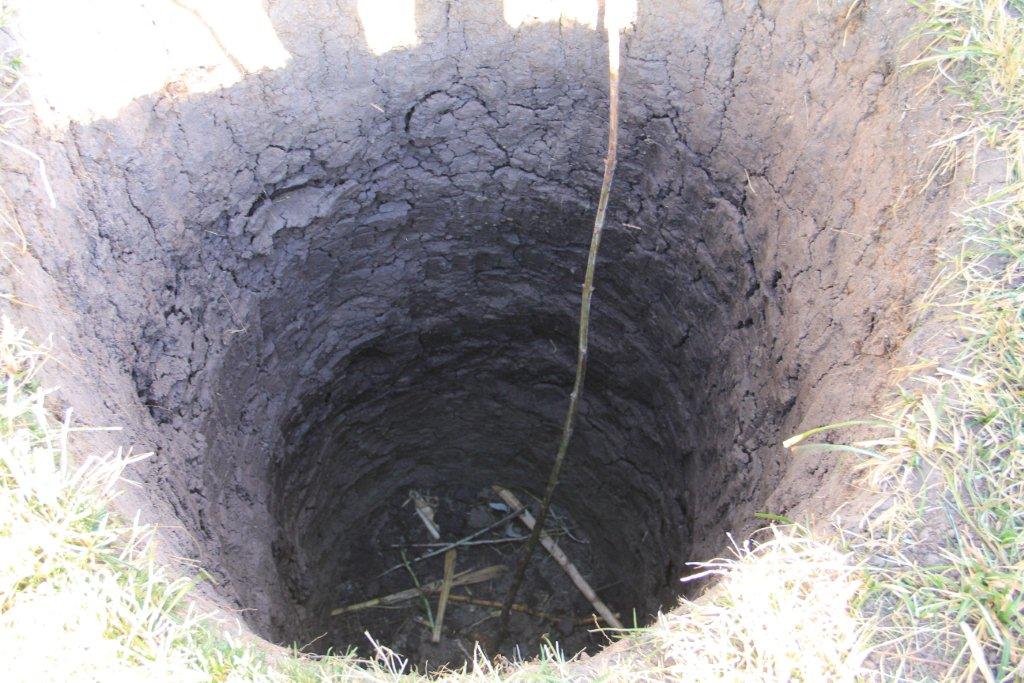






About The Author: Meredith
More posts by Meredith